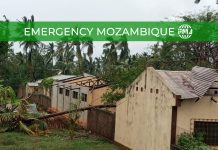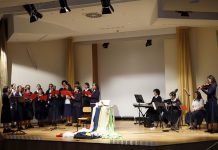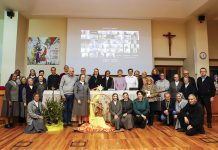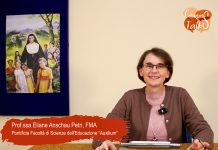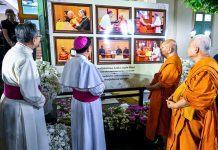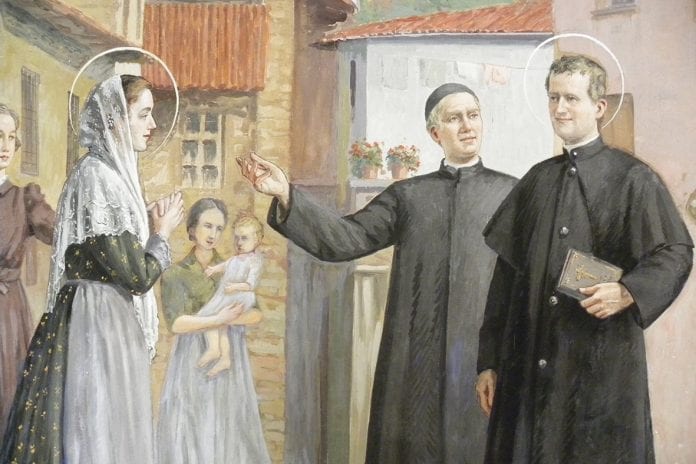Rome (Italy). The Mother General of the FMA Institute, Sister Yvonne Reungoat, invites all the FMA to live the Triennium (2019-2022) of preparation for the 150th anniversary of the Foundation of the FMA Institute, rediscovering together with the Educating Communities and young people, the figure of Mother Mazzarello.
“As a sign of communion, we propose to live the Feast of St. Maria D. Mazzarello with special solemnity through an accurate and involving preparation, allowing gratitude to emerge for the gift of her holiness and for the actuality of the Salesian mission in the world” (Circular 989).
Presented here is the initial part of a Conference by the Servant of God Mother Rosetta Marchese, held in August 1979 in Francheville (France) on the occasion of the ‘Week of Salesian Spirituality’ entitled “Maria Domenica Mazzarello, feminine experience of the Salesian charism”.
Starting from the biography of Mary Domenica, Mother Rosetta outlines the characteristics of feminine Salesianity.
“In the number of the most well-known educators, Sister Maria Domenica occupies a prominent place even if she was never a theorist of youth education. In fact, her educational experience was born first of all from an innate natural predisposition strongly inclined to help others both from a religious and a more properly pragmatic point of view. It was in the concreteness of life and in the most pressing needs of others and of needy youth in particular . Assistance to the sick and her initial and active adhesion to the Pious Union of the Daughters of the Immaculate Conception attest to this in an irrefutable way.
Provided with a strong-willed attitude that led her not to give up in the face of difficulties, and a lively intelligence forged from her youth by the heavy work in the fields, in love with the Eucharistic Jesus with which she nourished herself daily, Mary Domenica harbored in herself an eruptive strength that could not fail to explode into something truly great and edifying.”
Impetus, passion and action, sweetness and benevolence were the special prerogatives of her educational goal based on prevention, in harmony with the pedagogical idea of Don Bosco. Impetus, passion, and action dictated not only by her natural temperament but above all by a strong yearning for holiness and by an active adhesion to the progressive call of God: sweetness and benevolence in imitation of the heart of the Beloved, mild, humble, and benevolent towards all. All this will translate into loving service for female youth in terms of education in religious values and orientation to life: an educational program that did not allow hesitation and delay, given the needs of the youth society of the time, and therefore not extendable over time. Impetus, passion, action, sweetness, and gentleness at the service of the least in the spirit of authentic Christian charity. Doubtlessly, the religious education received in her family was the basis for the discovery of her more specific vocation that gradually became more manifest and evident.
The encounter with Don Bosco had to have opened her eyes and heart completely, so much so that, intuiting the holiness of the educator and the goodness of his apostolic plan, she decided to follow him as a faithful disciple. Mother Mazzarello understood and adhered so strongly to the Salesian vocation, that she committed all her wisdom, her love, and her creative femininity to it.
“At 44 years of age, God’s plan for her is accomplished and the feminine experience of the Salesian charism, lived by her at first instinctively, then by the impulse of the Spirit, and then knowingly as the response to the will of God, was a truly original, a gift of the Spirit to His Church.”
The life of Mary Domenica Mazzarello unfolded over 44 years (1837-1881) especially in Mornese, a small farming village in Monferrato, in the province of Alessandria. She was the first of seven children, in a family supported above all by the faith and wisdom of their father, Joseph, an honest and hardworking man. Helping mother Maria to look after her younger brothers and sisters will lead her to develop a sense of motherhood and educational talent.
Over the years, her life of union with God centered on the Eucharist and lived under the maternal gaze of Mary, becomes ever more intense under the spiritual guidance of Fr. Domenico Pestarino. The experience of the typhoid illness, with the consequent weakening of her body, determine in Mary Domenica’s life a ‘change of path’, up to the meeting with Don Bosco in 1864, which further increases in her the determination to spend herself for youth in the way traced out by the holy educator. On 5 August 1872, the date that marks the birth of the Institute of the Daughters of Mary Help of Christians, she made her vows together with 11 companions in the presence of the Bishop of Acqui and Don Bosco.
Mother Yvonne Reungoat encourages the FMA to commit themselves to be witnesses and bearers of the feminine nuances of the educational charism of the Institute in the Church:
“The witness of Mother Mazzarello inspires in our communities the commitment to renew the freshness of life and action that comes from concrete gestures: by the assumption of the Constitutions and the ‘Preventive System’ with renewed love, we want to witness the feminine nuances of the educational charism of the Institute” (Circular 989)


